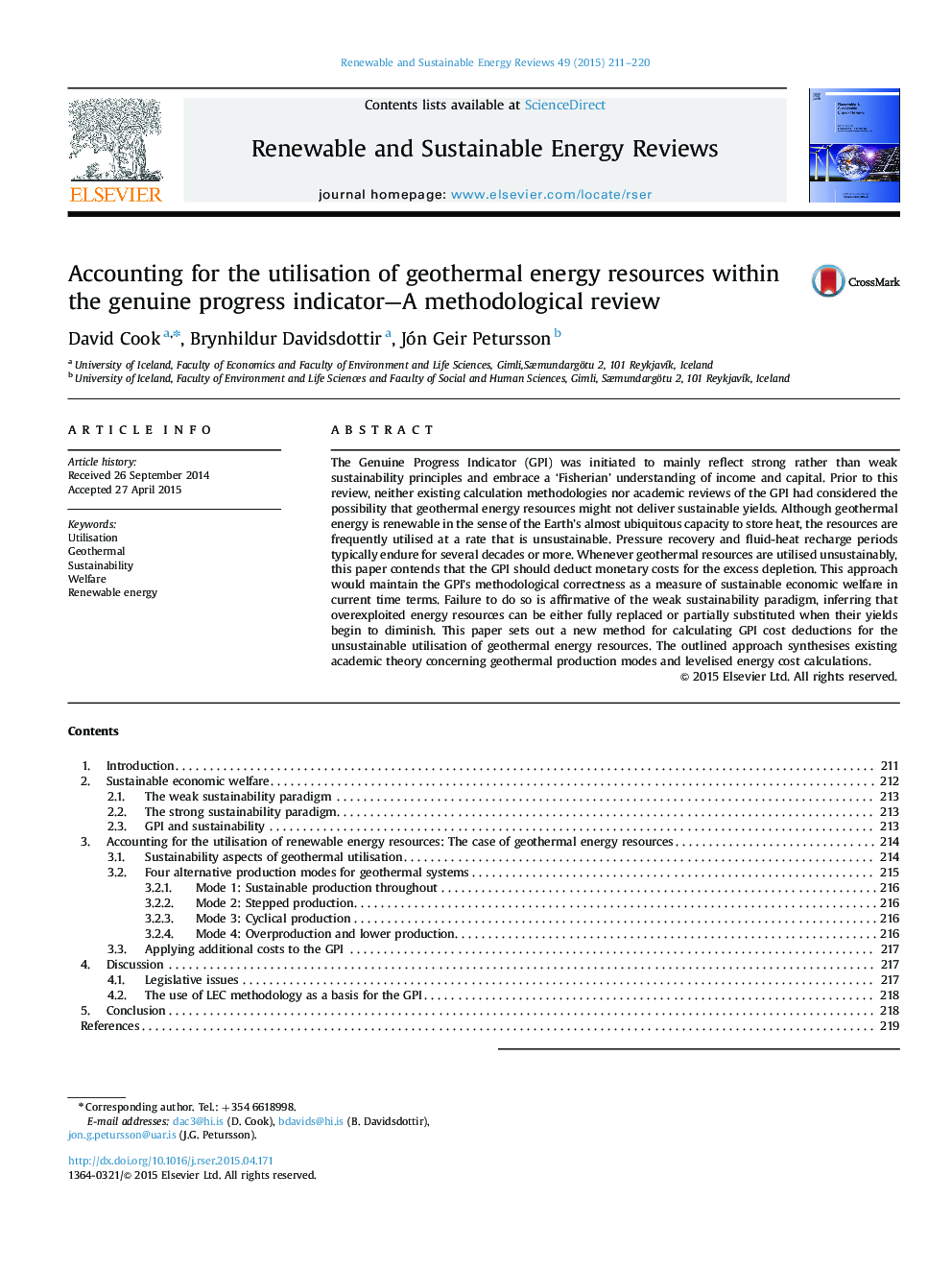| Article ID | Journal | Published Year | Pages | File Type |
|---|---|---|---|---|
| 8116392 | Renewable and Sustainable Energy Reviews | 2015 | 10 Pages |
Abstract
The Genuine Progress Indicator (GPI) was initiated to mainly reflect strong rather than weak sustainability principles and embrace a 'Fisherian' understanding of income and capital. Prior to this review, neither existing calculation methodologies nor academic reviews of the GPI had considered the possibility that geothermal energy resources might not deliver sustainable yields. Although geothermal energy is renewable in the sense of the Earth's almost ubiquitous capacity to store heat, the resources are frequently utilised at a rate that is unsustainable. Pressure recovery and fluid-heat recharge periods typically endure for several decades or more. Whenever geothermal resources are utilised unsustainably, this paper contends that the GPI should deduct monetary costs for the excess depletion. This approach would maintain the GPI's methodological correctness as a measure of sustainable economic welfare in current time terms. Failure to do so is affirmative of the weak sustainability paradigm, inferring that overexploited energy resources can be either fully replaced or partially substituted when their yields begin to diminish. This paper sets out a new method for calculating GPI cost deductions for the unsustainable utilisation of geothermal energy resources. The outlined approach synthesises existing academic theory concerning geothermal production modes and levelised energy cost calculations.
Related Topics
Physical Sciences and Engineering
Energy
Renewable Energy, Sustainability and the Environment
Authors
David Cook, Brynhildur Davidsdottir, Jón Geir Petursson,
